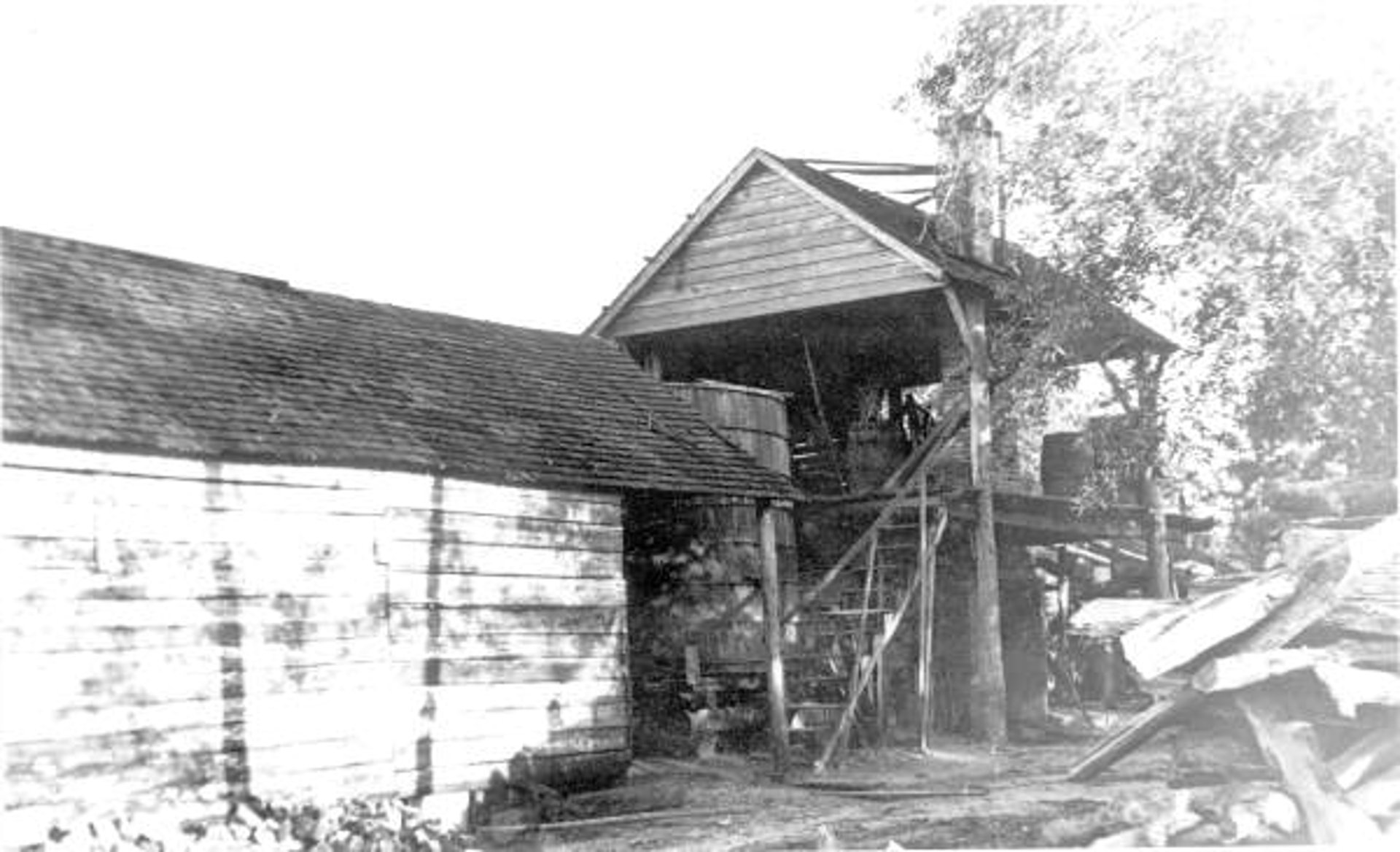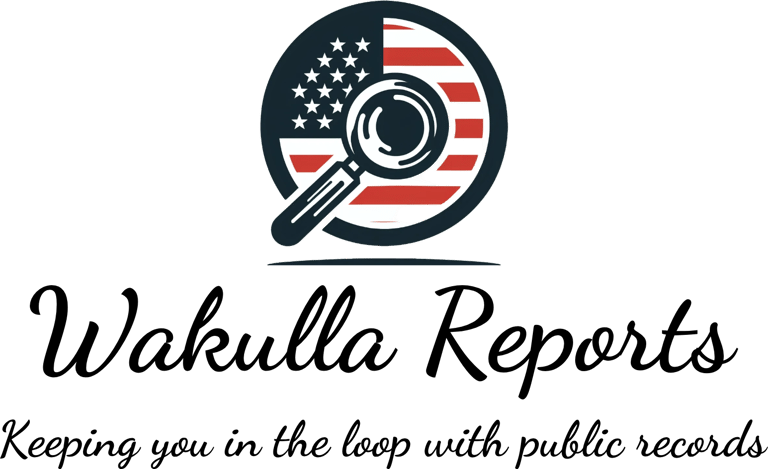Wakulla County Board of Commissioners’ September 3, 2025, Agenda: Navigating Budget Increases and Infrastructure Challenges
The Wakulla County Board of Commissioners’ September 3, 2025, agenda addresses a $34 million budget increase, overdue infrastructure projects, and administrative fixes driven by rapid population growth, revealing a strained system struggling to keep up.
2025WAKULLA BOCC MEETINGS
Bella Boyd
8/31/20255 min read


Wakulla County’s Board of County Commissioners will meet on September 3, 2025, at 5:00 P.M., and the agenda is a chaotic reflection of a county buckling under rapid growth. The budget is swelling, infrastructure projects are playing catch-up, and administrative fixes are piling up, all while taxpayers are left with vague details and a sense that the county is barely keeping it together. Here’s a breakdown of the agenda’s key items, focusing on the facts and the mess they reveal.
Public Hearing: Tentative Millage Rate and Budget
The county is holding its first public hearing to adopt the FY2025/2026 tentative millage rate and budget. The process started with a $199,643,426 preliminary budget on July 14, 2025, after workshops on June 2 and July 14. By August 18, it grew by $19,451,592, and now it’s up another $15,334,805—a $34 million increase in under two months. The proposed millage rate is 7.9000, governed by Florida’s Truth in Millage (TRIM) process, which allows reductions but no increases before the final adoption on September 15, 2025. The Property Appraiser certified taxable values, and TRIM notices were reportedly mailed on August 22, 2024—a likely typo, that should read August 22, 2025. The Board must pass a millage rate resolution before the budget, following a scripted reading. The budget remains fluid, leaving taxpayers guessing about the final tax hit.
Consent Agenda: Patching Holes in a Strained System
The consent agenda bundles items for a single vote, meant to streamline “routine” matters but often burying significant spending and fixes for past oversights. Commissioners can pull items for discussion, but don’t expect much unless someone pushes.
Minutes and Bills (Items 2–4)
The county seeks to approve minutes from the August 18, 2025, budget workshop and regular meeting, plus bills from August 14–27, 2025.Florida Commerce Grant Applications (Item 5)
The county is applying for funds from Florida Commerce’s Rebuild Florida 2023/2024 Storms Infrastructure Repair Program for three Panacea sewer projects, driven by storm damage and growth straining outdated systems:Panacea Shores Inflow and Infiltration ($2,822,481).
Panacea Area Sewer ($3,009,062).
Ochlocknee Bay Manhole Lining ($1,834,696).
The $400 million HUD-funded program requires no county match, with applications due by September 29, 2025. Future Board approval will be needed if awarded, but the agenda doesn’t address the county’s capacity to manage these projects amid its growth chaos.
Alexander Lift Station and Force Main (Item 6)
The county plans to award ITB 2025-13 to Gulf Coast Utility Contractors, LLC, for $5,327,523.50 to build a lift station and force mains on Alexander Road, plus $225,300 to Dewberry Engineers Inc. for oversight. Funded by a $9,511,143 Florida DEP grant, the project targets an overburdened lift station strained by population growth. Bids were received on August 5, 2025, with Gulf Coast’s the lowest of six. Set for completion in 345 days (mid-2026), this project is years late, a symptom of the county’s infrastructure lag.CAS Governmental Services Contract (Item 7)
The county wants to renew a $30,000 annual contract with CAS Governmental Services for legislative lobbying, bypassing competitive bidding per a June 16, 2025, decision. Expiring October 4, 2025, the contract has secured $3M (2022), $4.95M (2023), $2.325M (2024), and requested $8.258M (2025) in state funds. Sticking with CAS without exploring alternatives raises questions about whether taxpayers are overpaying for advocacy.
5–6. Florida Commerce Amendments (Items 8–9)
The county is correcting a September 16, 2024, error by rescinding and updating Amendment Two for two CDBG-DR agreements for generator installations, delayed by Florida Commerce staff turnover:
M0067: $33,824 ($28,186 county match) for generators at the Sheriff’s Office Annex and Public Works.
M0068: $79,119 ($65,932.50 county match) for generators at the Community Center and BOCC Administrative Building.
Updates include the agency’s name change, extending terms to December 31, 2025, and revising E-Verify and reporting rules. The need to redo these amendments points to poor coordination with the state.
7–8. DEP Springs Protection Program Amendments (Items 10–11)
LPS0110 (Alexander Road Lift Station): Amendment No. 2 increases funding from $1,407,317 to $9,751,143 and extends the term to December 31, 2028. The original $3,209,336 grant (March 2024) was cut by Amendment No. 1, showing shaky cost projections.
LPS0111 (Eagles Ridge/Wildwood Sewer Connection): Amendment No. 2 raises funding from $3,782,294 to $11,116,616, with no term extension. Both are cost-reimbursable, but the massive funding adjustments highlight the county’s struggle to estimate costs as growth surges.
SHIP Program with Accenture (Item 12)
The county seeks to extend its contract with Accenture for SHIP administration through September 15, 2026. Amended 11 times since 2011, it supports six housing projects with state funds. The endless extensions suggest the county lacks a long-term housing strategy.Avenu Solutions Agreements (Item 13)
Renewal No. 3 and Amendment No. 3 extend Avenu Solutions’ contracts for special assessment rolls to October 1, 2026, with costs rising to $14,308.25/year (Continuing Services) and $866.78/month (IT Services). These manage solid waste and fire protection assessments, but the price hikes and final renewal leave the county with no clear plan post-2026.Rivertown Community Church Agreement (Item 14)
The county proposes an amended agreement with Rivertown Community Church for Community Center space through October 1, 2028, at $54,080/year ($4,506.67/month). RCC’s maintenance and AVL support offset costs, but leaning on a church to prop up facilities shows the county’s budget strain from growth.
General Business: Band-Aids for a Growing County
Wakulla Gardens Property Acquisition (Item 15)
The county wants to buy 0.228 acres on Maxson Street for $18,000 from the One Cent Sales Tax Road Fund for a stormwater retention area in flood-prone Wakulla Gardens. Tied to the Septic-to-Sewer project, it’s a small step, but the lack of a broader flood mitigation plan is glaring as development accelerates.Sopchoppy Billing Agreement Termination (Item 16)
Amendment No. 3 ends the county’s sewer billing agreement with Sopchoppy by May 1, 2026, shifting duties to Public Works. Sopchoppy’s $1.75/customer fee for 2,110 customers costs $44,310 yearly, and the transition might save money, though Public Works’ costs could offset this. Sopchoppy’s January 2025 notice and the need for data transfers and public meetings reveal yet another poorly timed handoff.
The Takeaway
Wakulla County’s agenda is a mess of delayed infrastructure projects, budget bloat, and administrative fixes that displays for all to see, ineffective management. Sewer and stormwater projects are critical but years late, driven by a population boom the county didn’t anticipate. Grants are a crutch, masking fiscal weaknesses, while contract extensions with CAS, Accenture, and Avenu show a lack of fresh thinking. The Sopchoppy billing switch and typo-ridden TRIM notice (August 22, 2024?) further outline the county’s disarray. The September 15 final budget hearing is unlikely to bring clarity, given the county’s track record of last-minute changes and opaque communication. Growth is outpacing governance, and taxpayers are stuck with the bill. Stay sharp, Wakulla!

Additional Social Links
YouTube is your go-to for short clips, video explainers, and visual breakdowns of how Florida and Wakulla governments really work.
Facebook brings you bite-sized written content, sticky-note facts, and rolling updates you can share and discuss.
Prefer to browse at your own pace?
Bookmark our website and visit anytime for fresh posts, resources, and real-life examples from right here in Wakulla County.
© 2024. All rights reserved.
